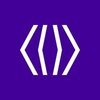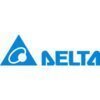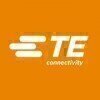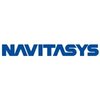Filter interviews by
Hipad Technology India Interview Questions and Answers
Hipad Technology India Interview Experiences
3 interviews found
I applied via Naukri.com and was interviewed before Feb 2023. There were 2 interview rounds.
Written test to gauge skills
(1 Question)
- Q1. Asked about testing parameters, things worked on till date
Interview Preparation Tips
Test Engineer Interview Questions asked at other Companies
I applied via Walk-in and was interviewed before Feb 2021. There were 2 interview rounds.
Group discussion meant a very big thing for a company brighter future
Assignment is the thing that makes people know more about whatever they are doing for
Interview Preparation Tips
- shoes
I applied via Approached by Company and was interviewed in Jan 2018. There were 4 interview rounds.
Interview Preparation Tips
You need to stay calm and should apply presence of mind. Please go through the job description thoroughly word-by-word and recheck your resume to ensure that you are a best-fit for the position.
Skills: Problem Solving, Leadership, Time Management, Decision Making Skills
Duration: <1 week
Floor Manager Interview Questions asked at other Companies
Top trending discussions






Interview questions from similar companies

I applied via Company Website and was interviewed in Jun 2020. There was 1 interview round.
Interview Questionnaire
2 Questions
- Q1. Regarding protocols and app security.
- Q2. How will you secure an iOS application?
- Ans.
Securing an iOS application involves implementing various measures to protect user data and prevent unauthorized access.
Implement secure authentication mechanisms such as biometric authentication or two-factor authentication.
Use encryption to protect sensitive data both in transit and at rest.
Implement secure coding practices to prevent common vulnerabilities such as SQL injection or cross-site scripting.
Regularly upda...
Interview Preparation Tips
Skills evaluated in this interview

I applied via Campus Placement and was interviewed in Jan 2021. There were 4 interview rounds.
Interview Questionnaire
1 Question
- Q1. Basics of java and data structures, they will ask you some puzzles
Interview Preparation Tips

I appeared for an interview in Dec 2016.
Interview Questionnaire
1 Question
- Q1. How you will work under a supervisor.
- Ans.
I will communicate effectively, follow instructions, seek feedback, and collaborate with my supervisor.
Communicate regularly with supervisor to provide updates on progress and ask for clarification when needed
Follow instructions carefully and ask for help if unsure about a task
Seek feedback on my work to improve and grow professionally
Collaborate with supervisor and team members to achieve project goals
Provide suggesti
Interview Preparation Tips
Experience: I got selected for next round.
Tips: Do not loses hope.
Duration: 1 hour
Total Questions: 10
Round: Technical + HR Interview
Experience: It was nice experience.
Tips: Do not loses hope.
Skills: Technical Analysis, Managing People
College Name: IIT Kharagpur

I applied via Other and was interviewed before Oct 2019. There were 3 interview rounds.
Interview Questionnaire
2 Questions
- Q1. How to react in a critical situation to customer. Need to explain about the issue or give solution for the issue?
- Q2. How are you going to handle a 5 member team
Interview Preparation Tips

I applied via Naukri.com and was interviewed before Mar 2020. There was 1 interview round.
Interview Questionnaire
1 Question
- Q1. Relevant to department
Interview Preparation Tips

I applied via Recruitment Consultant and was interviewed before Oct 2020. There were 5 interview rounds.
Interview Questionnaire
3 Questions
- Q1. Project description
- Ans.
Developed a web-based project management tool for a software development company.
Used Agile methodology for project management
Implemented user authentication and authorization
Integrated with third-party tools like JIRA and GitHub
Provided real-time project progress tracking
Generated reports for project analysis
- Q2. Python based problems
- Q3. Embedded scenarios
Interview Preparation Tips

I appeared for an interview before Sep 2020.
(1 Question)
Round duration - 60 minutes
Round difficulty - Medium
Coding question was given.
- Q1.
Remove Vowels from a Given String
Given a string
STRof lengthN, your task is to remove all the vowels present in that string and return the modified string.Explanation:
English alphabets ‘a’, ‘e’, ‘i...
- Ans.
Remove vowels from a given string while maintaining the relative position of other characters.
Iterate through each character in the string and check if it is a vowel (a, e, i, o, u).
If the character is not a vowel, add it to the modified string.
Return the modified string as the output.
(1 Question)
Round duration - 40 minutes
Round difficulty - Medium
It was first technical round with technical team.
- Q1. What is the difference between MySQL and MongoDB?
- Ans.
MySQL is a relational database management system, while MongoDB is a NoSQL database.
MySQL is a relational database, meaning it stores data in tables with rows and columns.
MongoDB is a NoSQL database, storing data in collections of JSON-like documents.
MySQL uses SQL for querying data, while MongoDB uses a query language similar to JSON.
MySQL is ACID-compliant, ensuring data integrity, while MongoDB sacrifices some ACID ...
(1 Question)
Round duration - 30 minutes
Round difficulty - Medium
Tehnical round 2.
Here my projects and internships were evaluated
- Q1. Can you explain your projects, including the technologies used and your approach?
Round duration - 30 minutes
Round difficulty - Easy
HR questions were asked and remuneration details were given to me
Interview Preparation Tips
Tip 1 : Start preparation as early as possible
Tip 2 : Prepare atleast 2 industry standard projects
Tip 3 : Focus on communication more
Tip 1 : Explain yourself properly there, resume reflects your personality. Modify resume according to company/position requirements
Tip 2 : Do not write too much, it should be simple and decent
Skills evaluated in this interview
Hipad Technology India Interview FAQs
Tell us how to improve this page.
Interview Questions for Popular Designations
- Senior Executive Interview Questions
- Analyst Interview Questions
- Design Engineer Interview Questions
- Software Engineer Interview Questions
- Sales Executive Interview Questions
- Associate Software Engineer Interview Questions
- Test Engineer Interview Questions
- Senior Software Engineer Interview Questions
- Show more
Hipad Technology India Interview Process
based on 1 interview
Interview experience
Interview Questions from Similar Companies
Hipad Technology India Reviews and Ratings
based on 121 reviews
Rating in categories
|
Team Lead
19
salaries
| ₹2.1 L/yr - ₹3.2 L/yr |
|
SMT Engineer
15
salaries
| ₹2.2 L/yr - ₹3 L/yr |
|
Production Engineer
9
salaries
| ₹1.5 L/yr - ₹4 L/yr |
|
TRC Engineer
9
salaries
| ₹1.4 L/yr - ₹2.2 L/yr |
|
Operator
8
salaries
| ₹1.1 L/yr - ₹2.2 L/yr |

Flex

Foxconn

TE Connectivity

Vertiv
- Home >
- Interviews >
- Hipad Technology India Interview Questions










